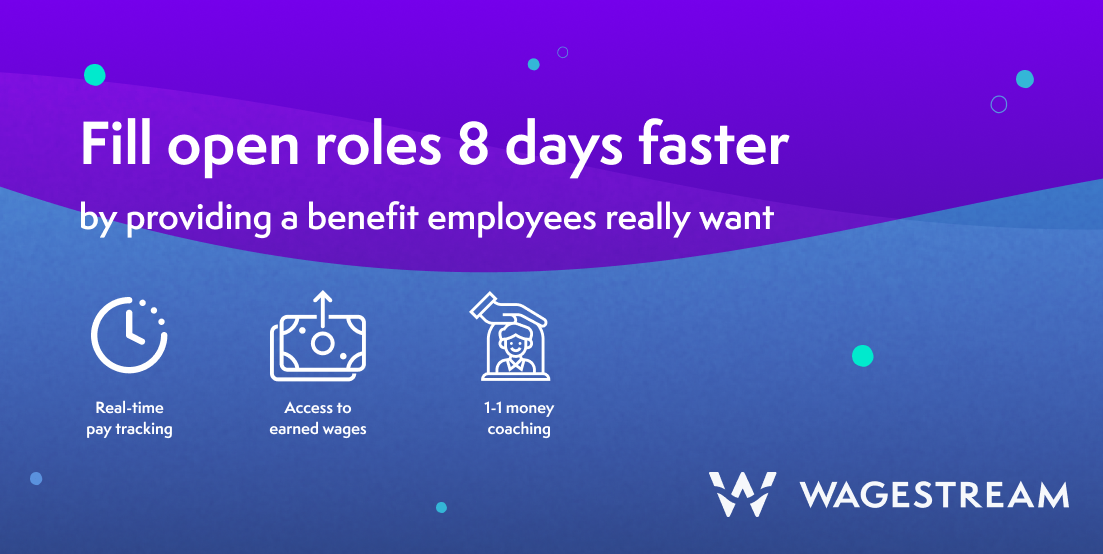

Wagestream was founded in 2018 when CEO Josh Vernon saw one of his friends get into trouble after using a payday loan to buy a fridge. Over the past 3 years Wagestream has grown to become the mission-led responsible experts in financial wellbeing, providing innovative solutions such as earned wage access, pre-pay savings and 1:1 live chat financial coaching to solve the number one concern of hospitality employees - financial stress.
Backed by social impact charities and industry bodies – Financial Inclusion Action Plan (FIAP) Social Tech Trust, Barrow Cadbury Foundation, Joseph Rowntree Foundation, Fair by Design and Big Society Capital – it’s our mission to make money simple not stressful, ensuring everyone has the tools they need to secure their financial futures. We support more than 750,000 employees across the globe at organisations such as Hungry Jack’s, Pizza Hut, Brewdog, Leon and many more.
Evolving wellbeing programs: Is it more effective to focus on prevention rather than cure?

The way employers deliver wellbeing initiatives is maturing.
Only a few years ago many employers were convinced that offering an Employee Assistance Program (EAP) was sufficient in addressing mental health needs of their employees.
But with an average take up rate below 10%, it’s clear that programs that only focus on addressing symptoms aren’t the answer. While there is still a taboo around acknowledging poor mental health or financial stress in the workplace, many are likely to continue to be reluctant to come forward through these channels. Even when they do, it can be too late.
Evolving approaches to wellbeing
Now it’s understood that mental wellbeing exists on a spectrum and is sensitive to fluctuations. It’s becoming clear that programs that focus on prevention can support a broader population by helping those on the lower and upper end of the wellbeing spectrum to build resilience. It’s also no surprise that many employers are implementing solutions that enable workers to manage their wellbeing every day.
The same has taken place in the area of physical wellbeing. Occupational health has historically been concerned with addressing issues as they occur, but in recent times, there has been a greater focus on preventing these issues before they occur. Solutions employers have begun to implement include subsidised gym memberships and fitness tracking.
Turning towards financial wellbeing
While the conversations around mental and physical wellbeing have changed in recent years, financial wellbeing is still misunderstood, which means it doesn’t always get the focus it deserves. Many organisations have wellbeing programs that focus on mental, physical and emotional health, but financial health is often missed.
Historically, financial wellbeing support has been limited to simply paying a wage at least and providing bonuses or discount platforms at best. But now, leading employers are offering solutions that tackle the key behaviours to financial wellbeing, underpinned by innovative technology.
Some of these solutions include microsaving platforms, app-based financial coaching, debt consolidation and tools to track or access earned wages to reduce financial shortfalls and help employees budget. The best of these offerings track and measure the impact they make to employee financial wellbeing.
The move from addressing symptoms to building resilience through preventative measures can have positive ripple effects. Wagestream research found that after using our financial wellbeing app seven in ten people feel they’re more in control of their money.
When an individual has positive financial wellbeing, they’re able to make positive money decisions, feel less stressed and less anxious. This can have positive flow on effects for organisations and reduce the business cost of workers with financial stress, which is estimated to cost an average of $420bn ($300bn US) each year.
Wellbeing programs can boost talent attraction
What does all this mean for talent attraction? Well, employers that offer preventative and nurturing benefits across all wellbeing domains will genuinely have a long-term positive, compounding effect on their people – and once people have experienced this, it’ll be very hard to accept going to an employer that does not provide the same sort of all-encompassing ‘springboard’ to long-term thriving.
This is already playing out for leading employers. An analysis of 900 job ads listed on indeed.com found that jobs that listed Wagestream as a financial benefit improved time to hire by 27% when compared to similar job ads.
Connect Now
Other Articles

Mad Mex: focusing on wellbeing to boost recruitment

How QSRs can tackle cost of living crisis

Could wellbeing initiatives help you win the war for talent?

How a financial wellbeing program has helped Honest Burgers recruit faster and fill more shifts in the UK

How QSRs can create flexibility for customer-facing workers

The secret sauce for improving financial wellbeing: an interview with Jenny McKie, Chief People Officer at Hungry Jack’s
